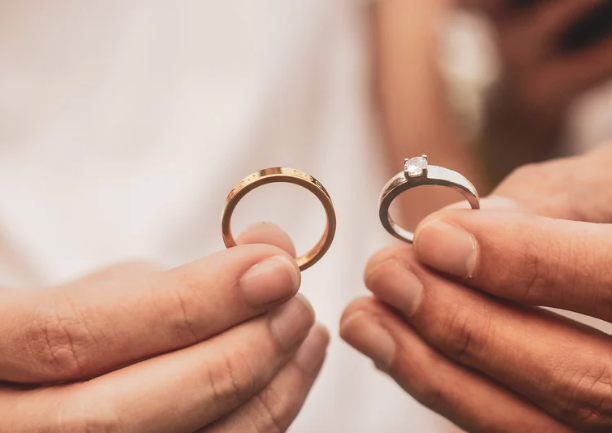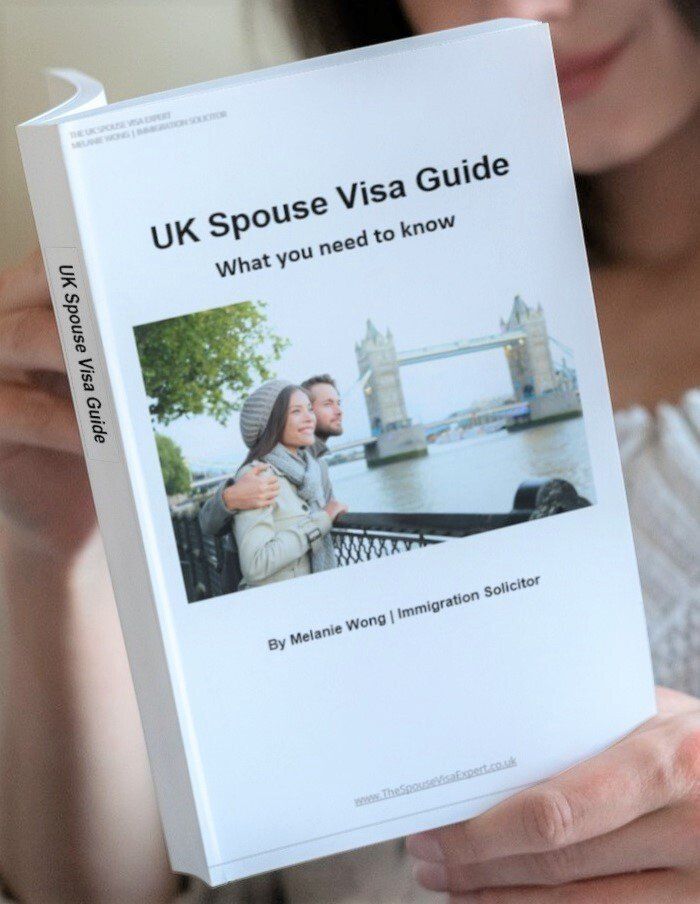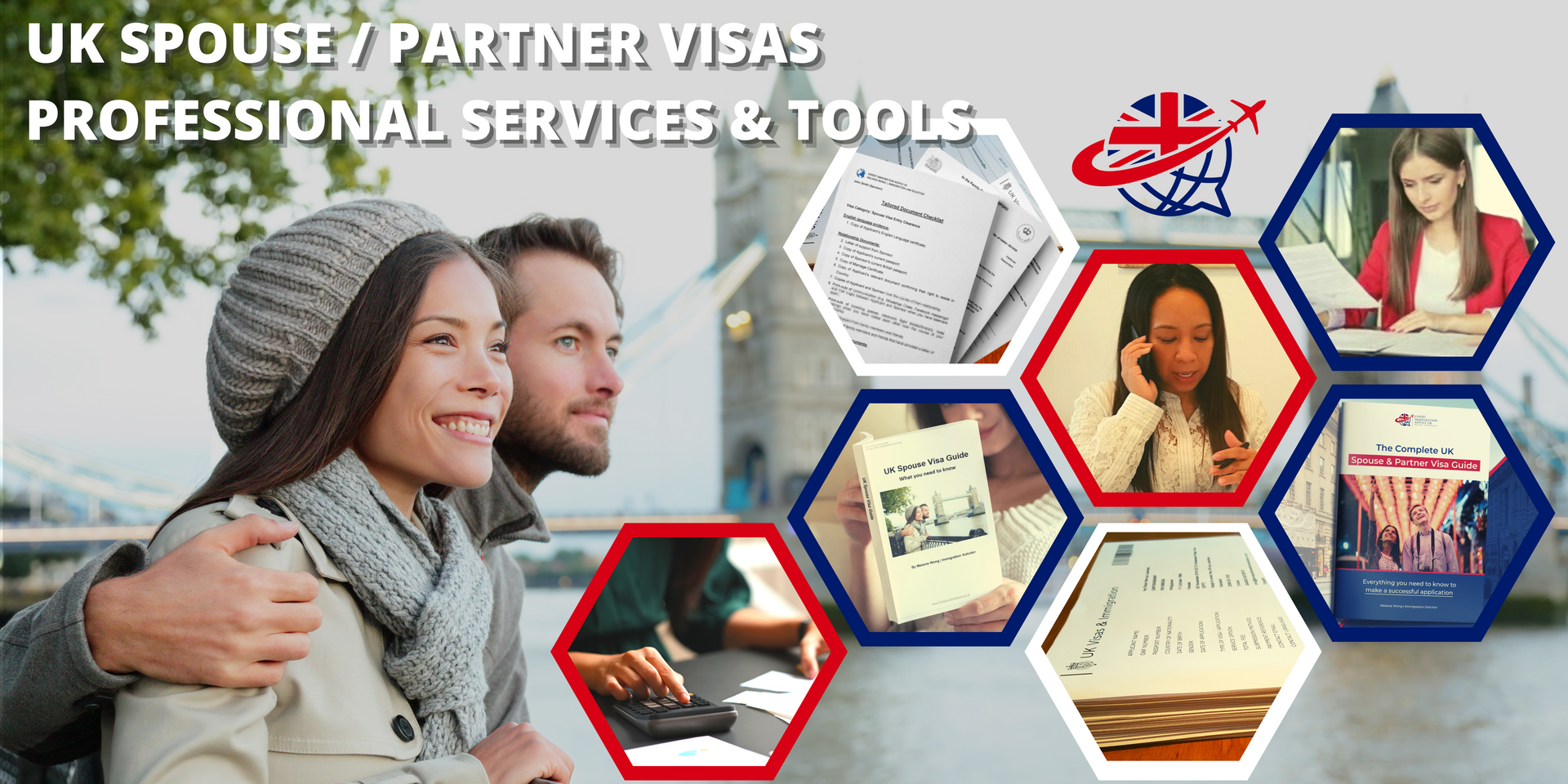5 Key Differences between a UK Fiancé(e) and a UK Spouse Visa
Share this:
The UK immigration system can be complex, particularly when it comes to visas for partners to join and settle with their British or settled person in the UK. Among the most common are the UK Fiancé(e) Visa and the UK Spouse Visa. Although many of the requirements apply to both visas, there are some key differences to be aware of. Understanding these differences between these two visas will allow couples to make an informed decision about which one to apply for based on their specific circumstances and future plans.
This article delves into the five key differences between a UK Fiancé Visa and a UK Spouse Visa, providing clarity and guidance for prospective applicants.
Amount of Time you can stay in the UK
Fiance(e) Visa
A fiancé(e) / proposed civil partner visa is initially granted leave to enter the UK for six months. During this period, the couple is expected to get married. Once married or they have formed a Civil Partnership, the visa holder must switch to the 5-year partner route (Further Leave to Remain as a Married/Civil Partner) to continue living in the UK.
Key Points:
- Valid for six months.
- Must switch to a Spouse Visa post-marriage to remain in the UK.
Spouse Visa
A spouse / civil partner visa is granted leave to enter the UK for a longer period, initially up to 33 months (2 years and 9 months). After this period, the visa can be extended for another 30 months (2 years and 6 months). After completing 5 years of continuous leave in the UK, the visa holder is eligible apply for Indefinite Leave to Remain (ILR).
Key Points:
- Initially valid for up to 33 months.
- Can be extended for an additional 30 months.
- Leads to ILR and potentially British citizenship.
More Applications to Process
As a Fiance(e) visa holder is required to apply for Further Leave to Remain as a spouse once they are married, this means that a new application must be submitted to the UKVI. This also means that the UKVI and Immigration Health Surcharge fees must be paid to the Home Office, and a new set of supporting documents must also be submitted in support of the new application.
This is in contrast with the Spouse Visa, where the Applicant is only required to apply once in order to enter the UK and remain in the UK, and they would then only be required to extend their visa before their visa is due to expire, which is up to 2 years and 9 months, or 33 months from the issue date.
Work and Study Rights
Fiancé(e) Visa
Holders of a Fiancé(e) visa are not permitted to work or study in the UK during the six-month validity period. The primary purpose of this visa is to allow the individual to enter the UK to marry/form a civil partnership with their partner.
Key Points:
- No work rights.
- No study rights.
Spouse Visa
A Spouse visa grants the holder the right to work and study in the UK. The holder will be able to apply for their National Insurance number (if they haven’t got one already), which would then enable them to work in the UK for a UK-based company.
Key Points:
- Full work rights.
- Full study rights.
Eligibility for Indefinite Leave to Remain (ILR)
Fiancé(e) Visa
Fiancé visa holders must switch to a Spouse Visa after marriage to continue living in the UK. This switch is necessary before the Fiancé Visa expires. However, the time spent holding the fiancé visa, i.e. a maximum period of 6 months, does not count towards the 5 year qualifying period (of the partner route) to apply for Indefinite Leave to Remain or settled status in the UK. As previously mentioned, what it can do is that it allows the holder to continue to remain in the UK and to apply to switch to the 5 year partner route once they are married to their partners and remain in the UK.
Key Points:
- Must switch to Spouse Visa post-marriage.
- Time spent on the Fiancé Visa does not count to the qualifying period for ILR.
Spouse Visa
Spouse visa holders can apply for ILR after five years of continuous residence in the UK. This period includes extensions. After obtaining ILR, they are eligible to apply for British citizenship (Naturalisation).
Key Points:
- Can apply for ILR after 5 years.
- Eligible for British citizenship after ILR.
Want more Professional Support and Guidance for your
UK Spouse/Partner Visa Application?
We pride ourselves on our High Success Rate for all UK Spouse/Partner Visa Applications we have been fully instructed to take on.
To help you achieve a successful outcome for you/your loved one(s), we have put together a range of Services and Tools specifically for UK Spouse/Partner Visa Applications including Step-by-Step Guides, Templates, DIY Application Packs, Documents Checking Service and More!
Permission to Switch to a different Visa Category
The last point to cover is that, although the fiancé(e) visa allows the holder to switch to the 5-year partner route while they are in the UK, this is the only route that they are allowed to switch to while they are in the UK. This contrasts with the spouse visa, which does allow the holder to switch to another UK Immigration route, other than the Partner Route, while they are in the UK. So if for example, the person with a fiancé visa separates from their Partner, and they wanted to apply to switch to a student visa or a skilled worker visa, they would not be eligible to apply for these visas while they are in the UK. They would be expected to return home and submit their application for either of these visas from there.
This is unlike the person who holds a spouse visa, who is allowed to apply to switch to a Student or the Skilled Worker route while they are in the UK, and while their spouse visa has not expired, i.e. they will not be required to return home and submit their application from there. - They can submit their application to switch while they are in the UK.
What about a UK Marriage Visitor Visa, is it the same as a Fiancé(e) Visa?
No, the main difference between these 2 visas, is that the Marriage Visitor Visa does NOT allow the Applicant to switch or to
apply for leave to remain as a Spouse/Civil Partner
after they get married/form a civil partnership, and while they are in the UK.
As a Marriage visitor visa is effectively a visitor visa (which is also granted for a maximum period of 6 months), the holder must return to their country of origin/residence even once they are married. They would then need to apply for a Spouse visa to return to the UK, to settle with their British/settled partner here.
Also important to note, is that the Home Office's criteria for visitor visas is very differently to the category which fiancé(e) and spouse visas fall under (settlement in the UK). For visitor visas, essentially applicants must clearly prove that they will be genuine visitors to the UK i.e. they are coming to the UK for a short stay, and will then return to their country of origin/residence. - Even if they are coming for the sole purpose of getting married.
Share this:
While every effort has been made to ensure that the information and law contained in this article is accurate and current as of the date of publication, we accept no responsibility for its accuracy or for any loss or damages arising from accessing, or the reliance, of this guidance.
Please also note that the information does not represent a complete statement of the Law and does not constitute legal advice.
If you would like specific professional advice about your UK immigration matter, please consider booking a consultation or one of my other legal services.
Making a UK Visa or Settlement application can be a stressful experience, and whilst there is a lot of ‘free’ information online, finding clear expert guidance that is up to date, and in line with your specific requirements can be a daunting task.
If you have any concerns about your case, it is recommended to reach out for advice from a trusted legal professional.







